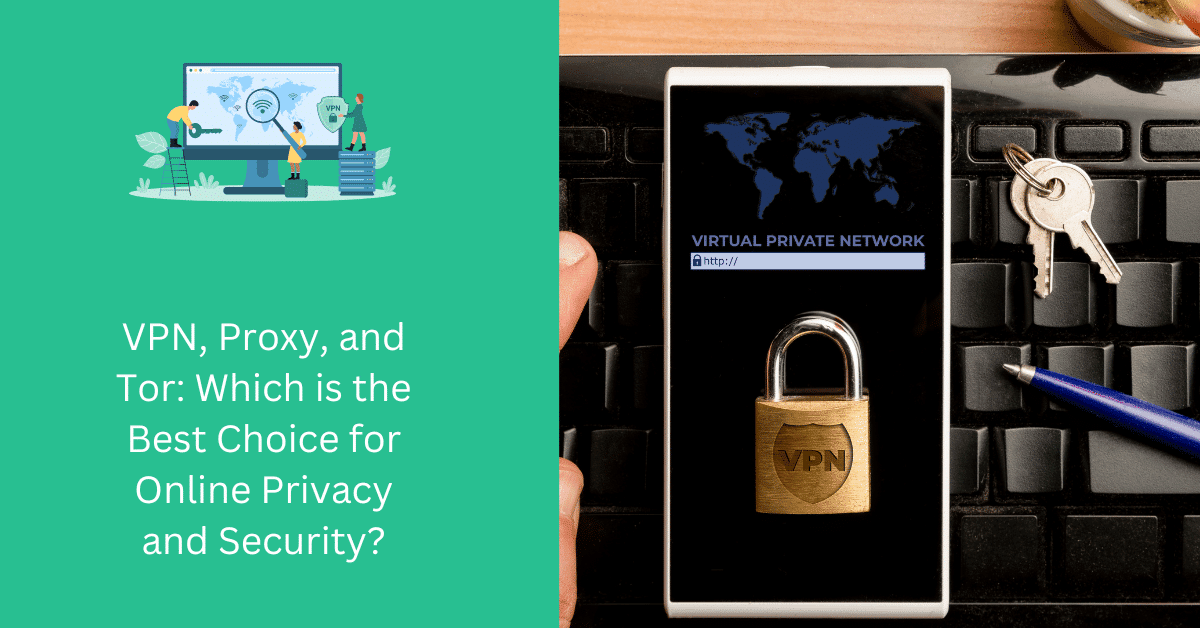
- What is a Virtual Private Network (VPN) and how does it ensure online privacy and security?
- How do proxy servers work and in what ways can they help or improve internet browsing?
- What are the key features and advantages of using the Tor network for online anonymity?
- Between VPN, Proxy, and Tor, which is the most suitable for accessing geo-restricted content?
- What are the limitations of using a VPN compared to a proxy server or the Tor network?
In today’s digital age, ensuring online privacy and security is paramount. With various tools available, such as VPNs, proxy servers, and Tor, it can be challenging to determine which is best suited for your needs. This article delves into the intricacies of each, offering a comprehensive understanding of their features, advantages, and potential drawbacks.
Understanding VPNs: Virtual Private Networks

What is a VPN?
A Virtual Private Network (VPN) is a service that encrypts your internet traffic, rerouting it through a server operated by the VPN provider. This process masks your IP address, providing anonymity and security while browsing the internet.
Key Features and Advantages
- Encryption: VPNs offer strong encryption protocols, safeguarding your data from hackers and surveillance.
- Geo-Spoofing: By changing your IP address, VPNs allow access to geo-restricted content, such as streaming services.
- Versatility: Suitable for various online activities, including secure browsing, streaming, and gaming.
- Compatibility: VPNs are compatible with most devices and operating systems.
Limitations
- Cost: Most reliable VPN services require a subscription.
- Speed Reduction: Encryption and server rerouting can sometimes slow down your internet connection.
- Trust Factor: Users must trust the VPN provider with their data.
Proxy Servers: Simple IP Masking Tools

What is a Proxy?
A proxy server acts as an intermediary between your device and the internet. It hides your real IP address but does not necessarily encrypt your data, making it less secure than a VPN.
How Proxy Servers Can Help or Improve
- Content Access: Proxies are effective for bypassing content restrictions or website blocks.
- Basic Anonymity: They provide a basic level of anonymity, suitable for non-sensitive tasks.
- Cost-Effective: Many proxy services are available for free or at a lower cost than VPNs.
Limitations
- Lack of Encryption: Most proxies do not encrypt your data, leaving it vulnerable to interception.
- Reliability: Free proxies can be unreliable and slow.
Tor Network: The Gold Standard for Anonymity

What is Tor?
Tor, short for The Onion Router, is a network that anonymizes your internet activity by routing it through a series of nodes, each encrypting the data before passing it along.
Key Features and Advantages
- High Anonymity: Tor provides superior anonymity by routing traffic through multiple nodes.
- Access to the Deep Web: It enables access to deep and dark web content not indexed by conventional search engines.
- Free to Use: Tor is a free and open-source software.
Limitations
- Speed: The multi-layered encryption and rerouting process can significantly slow down browsing speeds.
- Complexity: It can be less user-friendly and requires a bit more technical knowledge.
Comparative Analysis: VPN vs. Proxy vs. Tor
| Feature | VPN | Proxy | Tor |
|---|---|---|---|
| Privacy | High (encrypts data) | Moderate (no encryption) | Very High (multi-layer encryption) |
| Security | High (strong protocols) | Low (vulnerable to interception) | High (complex routing) |
| Speed | Moderate to High | High | Low |
| Cost | Subscription-based | Free or low-cost | Free |
| Ease of Use | User-friendly | User-friendly | Requires technical knowledge |
| Best for | Secure browsing, streaming, gaming | Non-sensitive tasks, content access | Maximum anonymity, deep web access |
Conclusion
Selecting between a VPN, proxy, or Tor hinges on your specific requirements. If you prioritize high security and privacy with versatile usage, a VPN is the ideal choice. For basic IP masking and accessing restricted content, a proxy server is sufficient. However, if your primary concern is anonymity, particularly for deep web access, Tor stands out as the most effective option.
This comprehensive guide aims to provide clarity in your decision-making process, ensuring that you choose the tool that best aligns with your online privacy and security needs.





